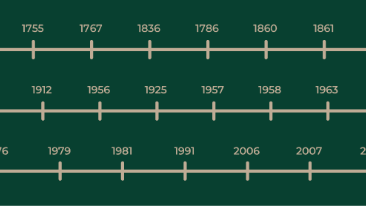
Growing support from the international community
Since its first presentation to the UN Security Council in 2007, Morocco's proposal of the autonomy plan to resolve the contrived conflict in the Saharan regions, it had got a groundswell of support from the international community. This support has not come from nothing or haphazardly, but rather from the consistent substance of the initiative itself. So how this could be explained?
A careful reading of the autonomy plan’s presenting letter by the Moroccan ambassador to the United Nations, and in particular the close reading of the autonomy plan text provisions, makes it possible to note the seriousness, realism and credibility characterizing this initiative in both form and content. The autonomy plan document is written in clear and transparent language, without any ambiguity
The substance of the plan is also distinguished by its coherence with the will of the international community and with the highest applicable international legal and political standards. As confirmed by the words of the Moroccan Ambassador in the letter of presentation of this plan: "It is a consensual, creative, responsible and open initiative which, by its content and purpose, will allow all Saharawis, whether resident inside the Kingdom or abroad, to manage their local affairs democratically, through representative, legislative, executive and judicial bodies”.
This initiative also allows the principle of self-determination to be realized through a free, democratic and modern expression of the system of self-government. It is in conformity with international legitimacy, taking into account the applicable global rules and standards in the field of self-government, in addition to ensuring the respect and promotion of human rights as universally recognized and enshrined in the Kingdom's constitution.
The Moroccan proposal, with such language, clarity and noble principles, had been able to garner increased international support, especially since the text of the proposal did not stop at the limits of generalities, but touched on the different aspects and problems of the conflict and had presented realistic, serious and honest solutions to overcome them. Moreover, the elaboration of the proposal did not take place in closed offices, but through a democratic process and extensive internal consultations, which were enriched by consultations at the international level.
By examining the initiative text, it will be confirmed that it is a detailed initiative, numbered in 35 points, and dealing with various aspects in all transparency and clarity. The proposal was made in response to the UN call for cooperation between the concerned parties in the conflict and the countries of the region in order to overcome the impasse and find a political solution. The proposal is also part of the construction of a modern democratic society, built on the pillars of the rule of law, guaranteeing individual and collective freedoms, economic and social development.
The Initiative confirms that Morocco will guarantee, through the system of self-government, to all Saharawis, their proper status and full role, without discrimination or exclusion. This will ensure that they can democratically manage their own affairs through legislative, executive and judicial bodies with exclusive competence. including the Parliament and Government of the Autonomous Region and its Supreme Court.
The system of self-government proposed would also provide the Saharawis with the necessary financial resources for the development of the region, in the local administration and police and the region's courts. It also promotes economic, social and cultural development through the budget and tax system of the autonomous region, whether through local taxes, fees and contributions, or from the revenues derived from natural resources of the region, the proceeds of its property, as well as the resources allocated to it as part of national solidarity. The State retains its competences in the fields of sovereignty, such as defense, foreign relations and the constitutional and religious competences of His Majesty the King, Amir Al Muminin.
The Kingdom will declare a comprehensive amnesty, which excludes any prosecution, arrest, detention, imprisonment, or any form of intimidation based on the facts covered by this amnesty.
The credibility and seriousness of the Moroccan initiative is enhanced by the fact that it proposes to the parties, after their approval, the establishment of a transitional council, composed of their representatives, to ensure the management of the repatriation of the inhabitants of the camps, the disarmament and demobilization and the reintegration of armed elements outside the territory of the region, as well as in any endeavor aimed at the adoption and application of this system, including electoral processes.
It is obvious that the Moroccan plan has all the elements of seriousness and credibility, which have made it gain more international support, and further expansion within the upward trend, which Moroccan diplomacy, with its wisdom, preemption and credibility, has gained much efficiency and persuasion among the international community and world public opinion.



